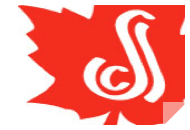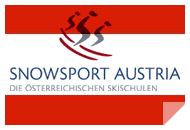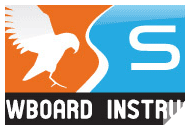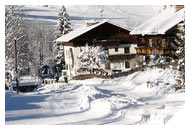
Ski Instructor Course
Ski Instructor Courses are governed by the ISIA (International Ski Instructor's Association) and there are plenty of different courses to choose from. We'll talk more about how to get qualified to teach skiing below:
The great thing about the ski industry is that there are no conditions to entry. If you want to go and live in a ski resort and enjoy the seasonaire lifestyle, there is nothing stopping you. You don't need an expensive degree, or even professional sports qualifications. If you don't care what you do while you are out there, you are just as likely to be able to find employment as the next person. If, however, you want to secure one of the better jobs in resort then you are going to need some qualifications and some experience. On this page we will introduce you to the most popular methods for getting ahead of the competition and securing the type of ski job that could allow you to return year after year.
The World's Governing Body for Ski Instructors is ISIA. They delegate to more than thirty different national bodies, who set out qualification guidelines for approved companies to follow. What does this mean in real terms? Basically, if you want to do a ski instructor courses, you must choose the company you want to teach you, and the National scheme you wish to follow. Some companies only offer one type of course, for example BASI (the British version), while others may offer more than one. Just because you are British, you do not have to take the BASI course. In theory, while the course content may vary slightly from company to company, and more so from course to course, it should not matter whether you take BASI, CSIA or any of the other ISIA approved courses as they should all allow you to teach people to ski in any of the countries within ISIA's remit. Except it's not quite that simple because a few ski countries make it slightly more difficult, though not impossible to teach without their national version of the ski instructor course. We are thinking specifically of France, where you will need to jump through a few hoops first if you want to have a realistic chance of securing a ski instructor job.
The following five are the most popular ski instructor courses for UK students. Four are English speaking, which makes the course more accessible, but we have also included the Austrian course. It is well regarded and although you will need some basic German language skills, you certainly don't need to be fluent and most companies include the language training as part of the course. For each ski instructor course we have listed a guide price for both level 1 and 2. While it is possible to take just the level 1 course, it isn't really of much value as most employers will insist you have completed at least the level 2 course.

BASI Ski Course
The British standard, and well regarded around the world. Level 1 allows you to teach on artificial slops, while Level 2 and above takes you out into the mountains.
Popularity: 50%
Course from: £6,000 (Level 1 & 2)

CSIA Canada
Another good English speaking option with a solid reputation for training good quality instructors. You'll probably need to make your way out to Canada to gain each level, though Andorra is an option for some companies who offer the CSIA instructor training course.
Popularity: 20%
Course from: £6,000 (Level 1 & 2)

NZSIA New Zealand
Consider, if you can, where you plan to spend your teaching career. The reason being, you generally follow the course from start to finish, level 1 to level 4. The NZ course can only be taken in NZ and Japan so you will need to travel over there each time you want to move up to the next level.
Popularity: 10%
Course from: £7,500 (Level 1 & 2)

Anwärter & Landes Austria
A great choice if you are planning to spend your career in Austria. While it is possible to be a ski instructor in Austria with different qualification, the Austrian scheme gives you an advantage. It also includes some German language training.
Popularity: 15%
Course from: £6,000 (Anwärter & Landes)

PSIA America
The Professional Ski Instructors of America boast many tens of thousands of members, yet is not very popular for British ski instructor students.
Popularity: 5%
Course from: £6,500 (Level 1 & 2)
Slopestyle's introduction to the 2014 Winter Olympics went some way to making two planks popular with the younger generation but there is no denying that snowboarding still has the edge. That said, there is still more work out there for ski instructors than there is for snowboard instructors. Don't worry though, there are still plenty of instructing opportunities, and they are only likely to increase in the coming years. As with the ski instructor courses, if you wish to become a snowboard instructor, the most popular award schemes are BASI, and English speaking Canada and New Zealand. And you are better off regarding the Level 2 course as an entry point to teaching. It is also worth noting that although New Zealand seems a long way to travel to get a qualification, you have the distinct advantage of being qualified by the time the next European winter season gets started, whereas the majority of European students will qualify mid to late season and miss the current year's employment opportunities. Let's take a look at the more popular instructor courses.

CASI Canada
Split into four levels, CASI snowboard instructors may begin teaching from level 1, showing basic technique to beginners. Level 2 is for those wishing to teach intermediate level skills, while levels 3 and 4 are aimed at getting people to a much more advanced stage.

SBINZ New Zealand
A similar format to the Canadian version, once you reach level 2 there are plenty of opportunities to specialise, for example in teaching children, or in freestyle snowboard coaching.

BASI UK
If you are only planning to teach on artificial slopes in the UK then level 1 is all you need to get started, however, level 2 snowboard instructor is a good minimum to aim for as you will already have built up some valuable teaching experience.
Although there is no denying that it is possible to get a job as a chalet cook with less experience and fewer qualifications than for the ski and snowboard instructors, cookery is still an art than needs dedication and practice to get right. Chalets rely on the quality of their customer service, including their food, to generate repeat bookings that keep them popular year after year. Like any quality hotel or restaurant, these chalets won't risk this reputation by hiring poor quality staff, so if you want the best salary, make sure you get proper training.
Chalet cookery schools and courses are increasingly popular, training would be chalet staff in the culinary arts, giving you a solid grounding in what will be expected from a chalet cook, building your repertoire of alpine dishes and tutoring you in customer service skills. It's also worth knowing that some of these schools have good links with chalets and act as feeder courses; providing a source of staff who have been trained to a required standard. When you are shopping around for a mountain chef cookery course, don't be afraid to ask whether they can help you with securing work after you have qualified.
Course cost: £500 - £800

The Food
Chalet Cookery Courses will usually include advice and tips on how to shop for ingredients in non English speaking countries. You'll also get advice on menu planning, cooking for large groups, and special diets.

The Venue
You can choose to take a course here in the UK, or actually in a mountain chalet environment. The former may be cheaper and more convenient, but the latter will better prepare you for the job ahead.

The Opportunities
If you are taking the chalet cookery course in addition to existing experience in the hospitality industry, then it will certainly give you an advantage when it comes to job applications. Most chalets prefer people with experience as well as theory.